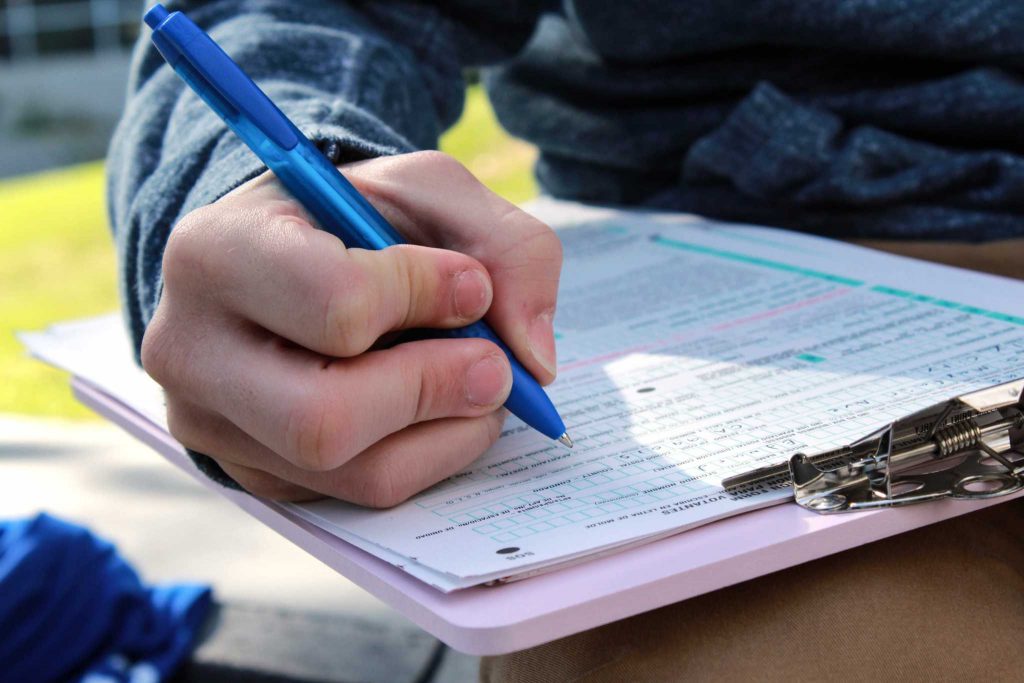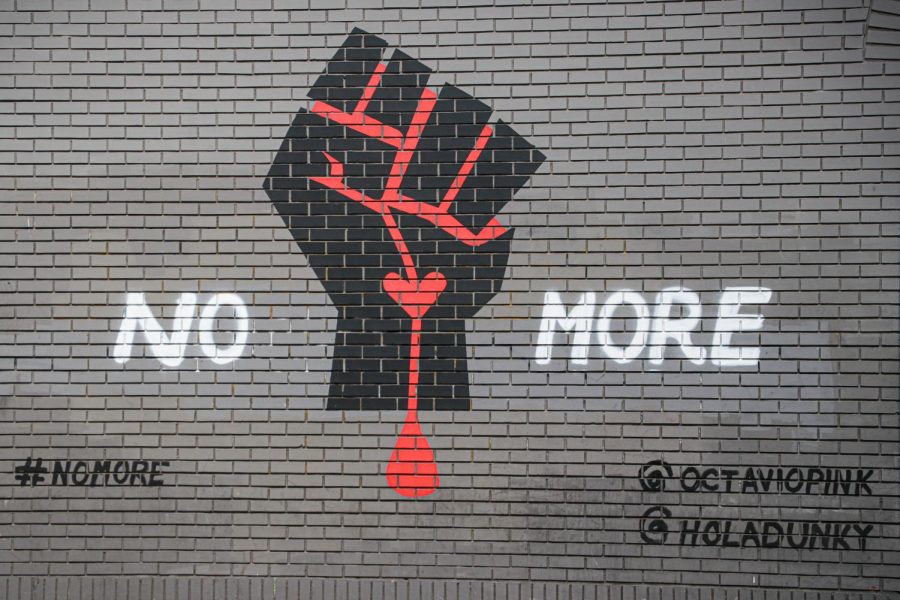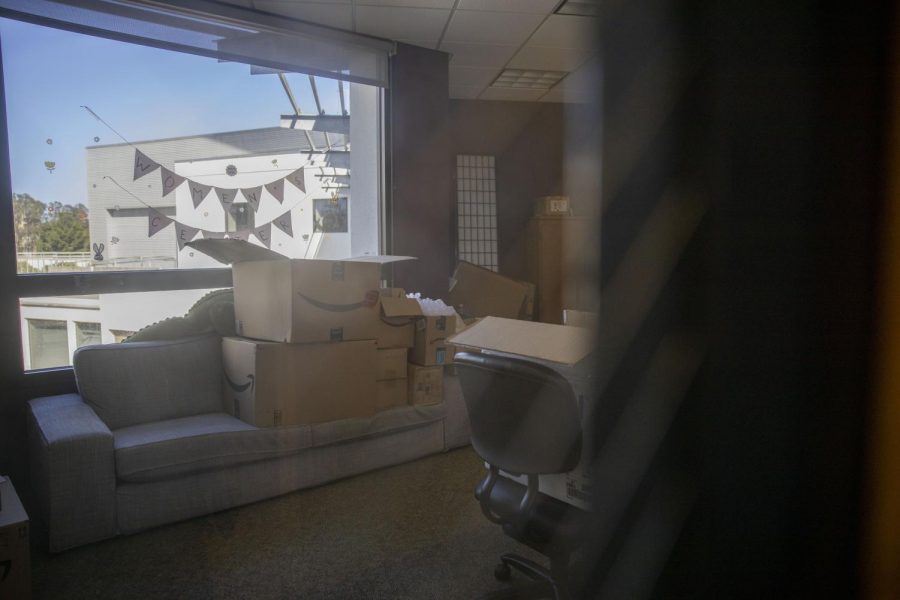The life-size image of Donald Trump in the quad was not hard to notice, but the tape holding it together was less obvious. One member of the Republican Student Union stood guard next to the cardboard cutout in an effort to protect it from being ripped in half again as it had been earlier on Tuesday.
Brian May, vice president of RSU, says this isn’t the first time their table has come under attack.
“Last week, we had a mob of people and someone drew all over our Trump poster and then ran away,” May said.
National Voter Registration Day followed the first presidential debate held on Monday. The day brought political parties and advocates to the SF State campus on Tuesday. RSU wasn’t handing out registration forms, but May said there were there to debate politics and argue the merits of capitalism and the political right.
Just a few feet away from the GOP group was the Beyond Bernie table and a non-partisan group representing the National Education Association, both of which were prepared to help students register to vote.
Oksana Samokish, a 30-year-old political science major, said that the Beyond Bernie club has registered or reregistered several people over the past few weeks, but are not endorsing any of the remaining candidates.
“We’ve noticed some tension with the Trump table over there and so we’ve been trying to catch the people who are really heated,” said Samokish.
“I think the people who are passionate about politics are already registered, but we’re hoping to catch some of the younger students that have never registered before.”
Eunice Kim of the National Education Association also emphasized the priority to register voters over suggesting who they should vote for. The 21-year-old hospitality and tourism major stressed that what students choose on their registration forms is confidential and not something the organization discusses or tries to influence.
“It’s really important to just take the first step and register,” said Kim. “We know it’s a little scary to go in and actually vote because you may not know what everything on the ballot actually means. It’s a little intimidating.”
Robert Smith, a professor in the SF State political science department, has observed more engagement this year among his students. That sentiment is reflected in data published by the California Secretary of State’s office.
“We are witnessing a wave of young Californians engaging in the democratic process. The timing says everything—they want to vote,” according to a press release they published earlier this year.
“Last time, 19 percent of the voters were between 18 and 29, so that’s what we’ll look for on election night – to see whether those numbers go up or down,” Smith said.
He did note that the millennial turnout during this election may be more motivated by a “distaste” for Trump as opposed to excitement about Clinton.
Natalie Fiutek, 22-year-old biology major, is still undecided and unregistered. However, watching the debate inspired her to do so before the deadline. The former Bernie Sanders supporter has been more focused on her work as a student than staying current on politics. Although she has committed to casting a ballot, neither candidate has yet to win her over.
“They both had great arguments,” said Fiutek.
Brian May doesn’t seem to think that many of the former Sanders supporters will migrate toward the Republican Party and Trump. “They have a lot of the same views as Trump when it comes to trade, but this school is mostly all social liberals and economic liberals,” May said.
“They want free stuff.”
Matt Singer of the National Voter Registration Day organization disagrees with May’s observation that nobody cares about politics or voting now that Sanders is out of the race.
“We can say that nationally we’re seeing a significant uptick in interest in the election,” Singer said.
Singer reported that there has been a big increase in student and youth organizations mobilizing for the registration drives across the country on Tuesday and that students are registering at higher rates.
Students and the rest of the nation may not have a favorable view of either candidate, but the ballot is packed with many proposals and lower-level candidates that can help shape life nationally and on a community level.
One thing that Smith and each of the campus political groups agree on is the importance of voting alone. Smith has encouraged his students to participate, “not just in terms of the election, but (for) the California ballot.”
Smith believes that even if students feel like they’re choosing the “lesser of two evils” for president, propositions like the death penalty amendment and the legalization of marijuana will likely bring young voters out to the polls.
“It gives them the chance to be actual lawmakers,” Smith said.






